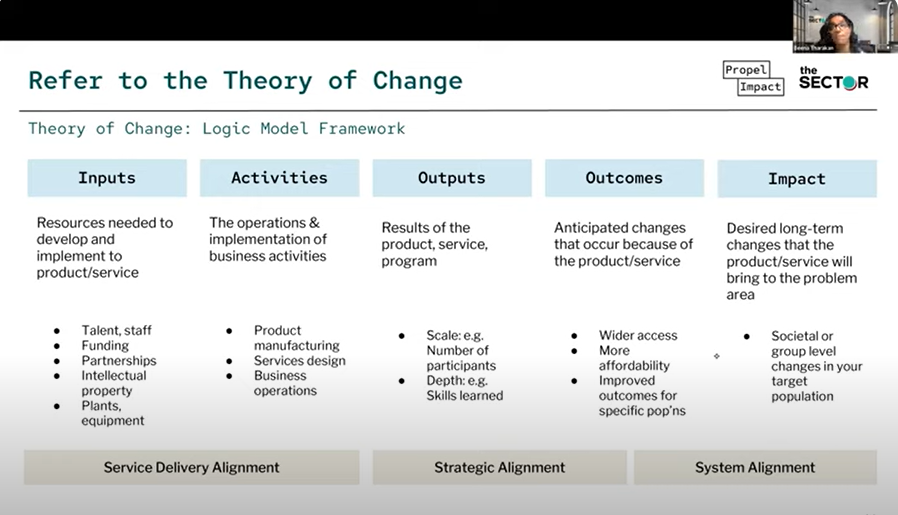How Traditional Market Research Drives Enterprise Success
In today’s highly competitive business landscape, traditional enterprises need to stay one step ahead of the game by thoroughly understanding their target market and making well-informed decisions. Market research plays an undeniably crucial role in achieving these objectives, providing enterprises with valuable insights and a competitive edge. So, let’s dive deep into the world of traditional market research for enterprises and explore how it can drive remarkable success.
Understanding Consumer Behavior and Economic Trends

Traditional market research for enterprises involves gathering valuable insights into consumer behavior and economic trends in a systematic way. It’s all about understanding your target market, validating business ideas, and scaling strategically in the market. By doing thorough research, you can really get to know your customers, figure out what they want, and make sure your products and services meet their needs. This is what sets you up for long-term success in the business world.
Market research plays a crucial role in traditional enterprises. This involves gathering insights on consumer behavior, economic trends, and validating business ideas in the market. It also focuses on understanding customer needs and scaling an idea into a successful business. However, for social businesses, things are different because they serve a population that may not directly buy or purchase the solution.
Social enterprises often work within a system and require collaboration with intermediaries and other system actors. The value of their solution comes from how it affects the entire system, not just individual consumers. This highlights the need for a different approach to market research for social enterprises. To succeed, it’s important to comprehend and navigate the group of people involved and concentrate on strategies for long-term growth. To learn more about social enterprises and their impact on society, click here.
Different business models, such as business-to-consumer (B2C) and business-to-business (B2B), are also relevant in both traditional and social enterprises. B2C involves providing products or services directly to customers. While B2B focuses on delivering solutions to other businesses to support their operations. By understanding these differences and adjusting market research, social enterprises can successfully drive their success and create a long-lasting impact.
Validating Business Ideas and Scaling in the Market
Market feasibility studies are an indispensable component of traditional market research for enterprises. These studies provide enterprises the opportunity to validate their business ideas. Ensuring that their products and services resonate effectively with their target market. By testing and improving their ideas, businesses can move ahead with confidence, knowing that their products or services are well-received and meet customer needs. Once approved, businesses can focus on growing and expanding their operations, reaching more customers and achieving long-term growth.
Enhancing Program Offerings through Community Partnerships

Partnerships are important because they bring different organizations together to solve complex social problems.
Partnerships at the service delivery level could involve teaming up with employment developmental agencies that offer similar or complementary programming but may not provide life stabilization wraparound support services. While these agencies may have some limitations in serving specific population groups, we could establish a partnership with a social enterprise to provide these services. Also, trade unions in the construction industry can be awesome partners, offering training and job opportunities.
At the community level, teaming up with local agencies can make use of existing programs and improve comprehensive support services for program participants. These partnerships can add to and broaden the social enterprise’s offerings, benefiting the entire community.
Partnerships at the system level can be all about reducing poverty, since the construction industry provides jobs that pay well, helping people break free from the poverty cycle and achieve stable housing. On top of that, teaming up with organizations that are committed to tackling labor shortages in industries like construction is worth considering.
These are important factors to consider when forming partnerships to enhance service delivery and achieve broader social impact.
Measuring Social Impact and Driving Systems Change
In our increasingly socially conscious world, measuring social impact has become a fundamental aspect for enterprises. Assessing their impact and implementing strategies for positive change helps achieve sustainable development goals and create a strong and positive brand image.
Implementing strategies for positive change involves taking deliberate actions to address societal challenges and create a meaningful impact. One strategy for driving positive social change is to create advocacy and awareness campaigns. Those that aim to educate and engage the public on specific social issues. A social enterprise may launch a campaign to raise awareness about reducing plastic waste. They encourage eco-friendly habits like using reusable bags and bottles.
Contributing to sustainable development goals is an opportunity for enterprises to create a positive impact on society and the environment. By aligning their activities with the SDGs, enterprises can integrate sustainability into their core business strategies. This involves adopting sustainable practices, such as reducing carbon emissions, promoting social equality, and supporting responsible production and consumption.
Research for a Social Enterprise’s Growth Strategy

An ecosystem building approach aims to reflect on the theory of change. The theory of change concept involves social innovation through a social enterprise causing disruption in a system. Identifying a problem leads to exploring a solution that creates a different path and brings about change.
The theory of change framework involves social innovation through a social enterprise creating disruption in a system. It includes:
inputs: resources and partnerships
output: are the result of the product or program
outcomes: are the anticipated changes
impact: are the desired long-term changes for the targeted population
The Bottom Line
Traditional market research is a powerful tool for gaining a competitive advantage in today’s market. By understanding consumer behavior, validating ideas, and measuring impact, enterprises can make informed decisions for success. Staying connected with customers and adapting to their needs is essential. Market research helps forge connections, foster innovation, and solidify industry position. This concludes our exploration of market research for enterprises. Armed with knowledge, enterprises can unlock growth and make a lasting impact.

